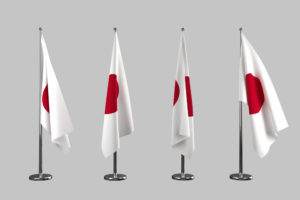The positives and negatives for investors of local pride and identity
I was working in Catalonia just before the referendum there in 2017 and shortly after that I was in the North Rhine -Westphalia area in Germany, where people were still digesting the results of the German elections. These trips, as well as the impact of Brexit in the UK, have made me aware of how important local – not just national – identities are for businesses to thrive.
The majority of Japanese companies based in Spain are in the Catalonia region, and this choice of location is not surprising as Catalonia has been one of the most prosperous and industrialized areas of the country, offering easy land access to France and several international ports. It turns out that one of the factors behind the Catalan independence movement is a resentment amongst the people of the region that their taxes are being transferred to prop up poorer parts of Spain.
The freedom of capital, labour, goods and services in the European single market creates competition between not just countries but also regions within those countries to attract investment from business. The European Union tries to prevent this turning into a “race to the bottom” in terms of cost of labour, tax rates and cost of capital by having tough regulations on labour standards, cracking down on tax avoidance and limiting how far member governments can subsidise business investment.
Before 2008 the system seemed to work well – labour flowed to the more prosperous parts of the EU where there were job shortages and capital flowed from those regions (and from Japan) to regions where the cost of labour was lower.
In a free market, this should have eventually led to an equalization of living standards across the European Union. However, the Lehman Shock, combined with the influx of new member countries from Eastern Europe meant that capital flows returned to the safer havens of Western and Northern Europe and workers in southern and eastern Europe left their home towns to find work elsewhere in greater numbers than before.
The tension this caused is particularly apparent in Germany. The anti-immigrant Alternativ fur Deutschland had very little support in the recent elections in the prosperous North Rhine-Westphalia region – which has one the highest concentration of Japanese companies in Europe. But it had strong support in former communist eastern Germany, where the continuing gap in living standards with the west causes resentment, fuelled by worries that immigrants from other eastern European countries are further eroding wages.
For Japanese companies considering investment in Europe, local sensitivities add another layer of complexity in choosing a company to acquire or a locational base. However, if Japanese companies show strong local commitment, the local employees will respond with equal loyalty and commitment too. This is very clear in the pride and loyalty of employees at Japanese automotive plants which have been operating for over 25 years in some of most deprived parts of the UK, who have expressed their determination to succeed despite Brexit.
This article was originally published in Japanese in the Teikoku Databank News on 8th November 2017 and also appears in Pernille Rudlin’s new book “Shinrai: Japanese Corporate Integrity in a Disintegrating Europe” – available as a paperback and Kindle ebook on Amazon.
For more content like this, subscribe to the free Rudlin Consulting Newsletter. 最新の在欧日系企業の状況については無料の月刊Rudlin Consulting ニューズレターにご登録ください。
Read More
 The lag between the UK’s growth rate and the rest of the world
The lag between the UK’s growth rate and the rest of the world Pernille Rudlin is interviewed by BBC World Service Business Matters on Theresa May’s trade delegation visit to Japan and the likelihood of being able to get any kind of commitment to a trade deal. You can hear it or download it
Pernille Rudlin is interviewed by BBC World Service Business Matters on Theresa May’s trade delegation visit to Japan and the likelihood of being able to get any kind of commitment to a trade deal. You can hear it or download it